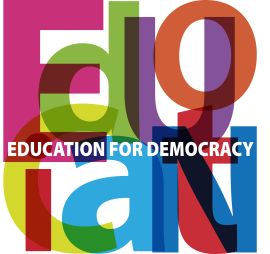On 18 November 2024, the Council of Europe and Hellenic National Academic Recognition and Information Centre (DOATAP) co-organised the event “Recognition of qualifications, a powerful tool for refugees’ integration: the European Qualifications Passport for Refugees example” in Athens.
The event brought together representatives of national and local authorities, higher education institutions and civil society organisations – key actors involved in the integration of refugees in our societies – to explore the Council of Europe’s European Qualifications Passport for Refugees (EQPR), which enables fair recognition of refugees’ qualifications even when documentary evidence of qualifications is lacking or incomplete.
Key speakers underscored the EQPR’s role in the social and economic integration of refugees.
Nikos Papaioannou, Secretary General for Higher Education at the Greek Ministry of Education, Religious Affairs and Sports, stated that “once refugees are settled in the host society, and their immediate priority issues are addressed, they need to tackle social integration issues that inevitably arise” and that the “recognition of refugees’ qualifications has become an essential tool for their integration into European societies.”
Not only is the recognition and valuing of refugees’ qualifications, knowledge and skills essential for socio-economic integration but also, according to Sofia Voultepsi, the Greek Deputy Minister of Migration and Asylum, “a key to security” and “a safeguard against human trafficking”.
Villano Qiriazi, Head of Education Department at the Council of Europe, said that “the instrument that we have developed helps to take first steps towards the integration of refugees in the society and in the economy of a given country”. V. Qiriazi presented the principles and main accomplishments of the European Qualifications Passport for Refugees since 2016 when the EQPR project was launched.
In addition, it was announced that the progress achieved so far within the EQPR project has led the Council of Europe Education Department to work “on a new policy instrument on valuing the qualifications, skills and competences of refugees in Europe that would further promote the need for clear legislative pathways for the integration of refugees.” The instrument will complement the EQPR, giving the EQPR – being a practical tool – stronger policy grounds, thus encouraging wider use and acceptance of the EQPR by public authorities, higher education institutions and recruitment bodies.
The event also showcased stories of refugees who have benefitted from the EQPR. One such story was shared by Mohamed Talha, EQPR holder since 2020 and MSc student at the International Hellenic University in Athens, reporting that the EQPR had allowed him to continue his studies and to find employment at the Red Cross.
Following the event, a further 75 refugees and/or asylum seekers will have their qualifications assessed by five teams of credential evaluators, using the interview-based EQPR methodology, at the end of November 2024.
For more information on the EQPR, please visit the Project Webpage.




